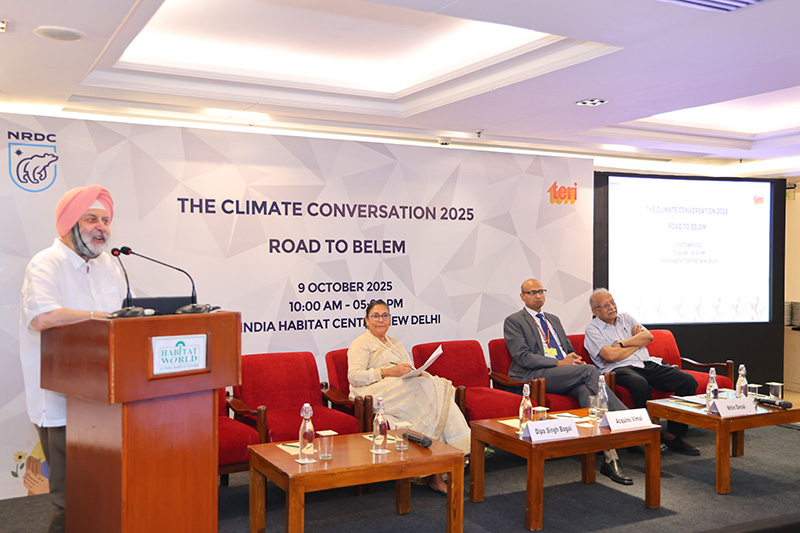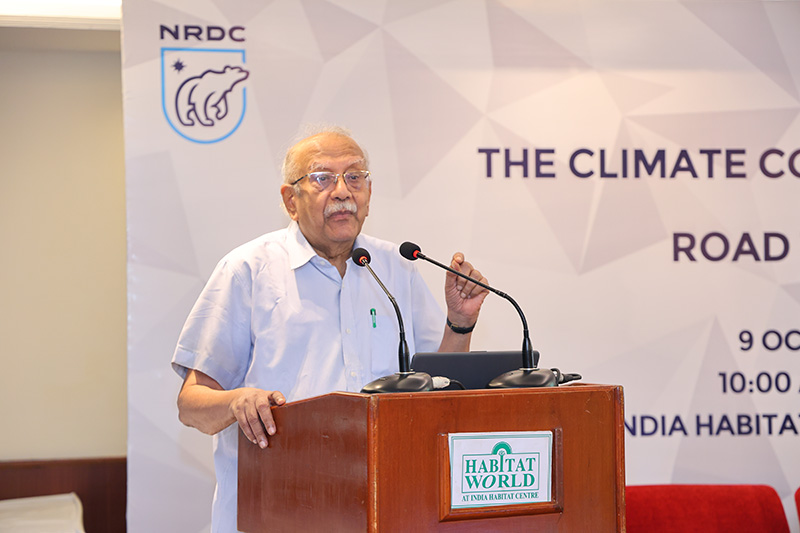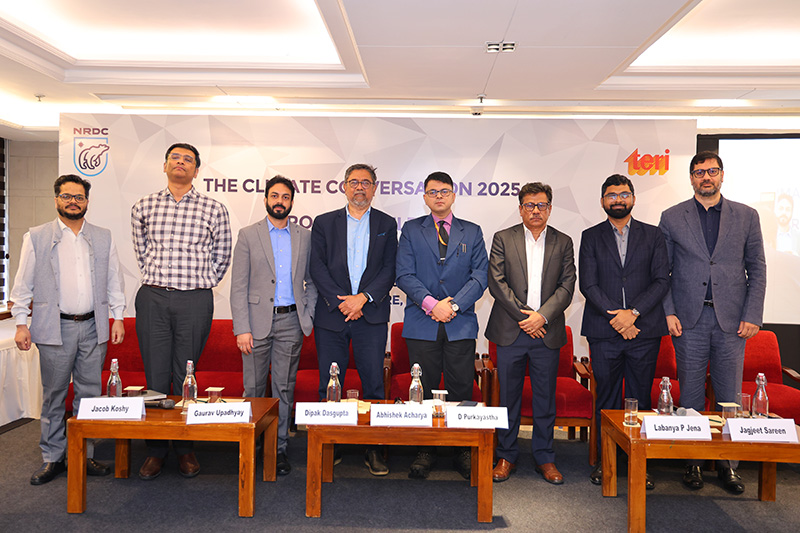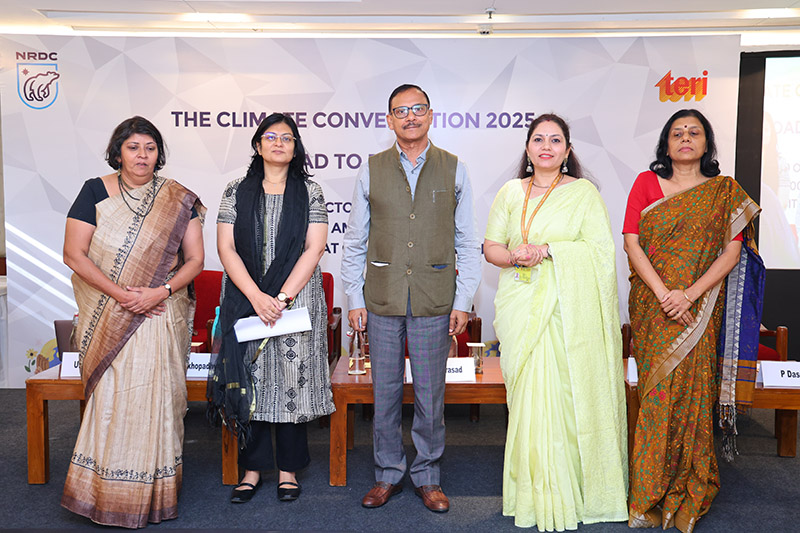Climate Conversation 2025: Road to Belem
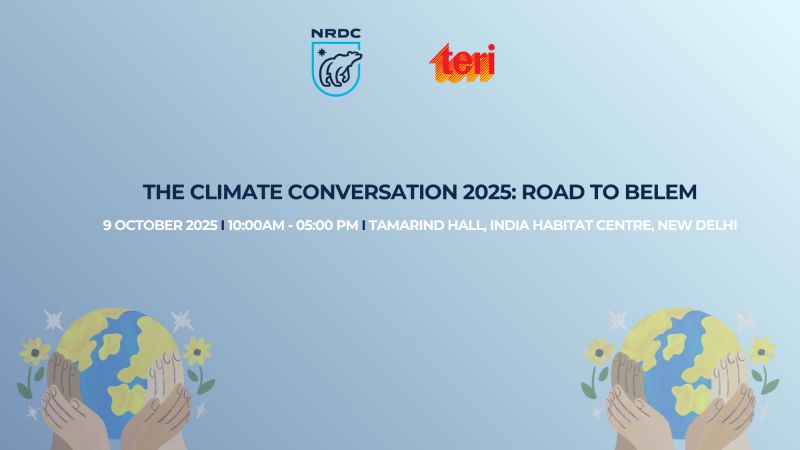
The Climate Conversation 2025: Road to Belém, co-hosted by TERI and the Natural Resources Defense Council (NRDC) in New Delhi, served as a critical preparatory platform for India's strategy ahead of COP 30 in Belém, Brazil. The central theme spanning all sessions was the urgent need to address climate finance and prioritize adaptation measures, even amidst a backdrop of strained multilateralism.
The Inaugural Session set the stage by stressing that climate conversations must be viewed within a significantly changed global reality since COP 29. Speakers and experts including Ms Dipa Singh Bagai, Country Head, NRDC India; Mr Nitin Desai, Chairman, TERI Governing Council and Mr Acquino Vimal, Ministry of External Affairs, emphasized that climate finance must be new, additional, predictable, and concessional, with a crucial balance between mitigation and adaptation that prioritizes public finance.
The session on 'Bridging the Climate Finance Gap for Just Transition' highlighted the critical role of public finance, Multilateral Development Banks (MDBs), and aligning climate funding mechanisms like the New Collective Quantified Goal (NCQG) with the Just Transition Work Programme (JTWP). The expert panel comprising -- Mr Abhishek Acharya, Director, Ministry of Environment, Forest and Climate Change; Mr Dipak Dasgupta, Distinguished Fellow, TERI; Mr Labanya Prakash Jena, Director, Climate and Sustainability Initiative (CSI); Dr Dhruba Purkayastha, Climate and Sustainable Finance Expert; Mr Jagjeet Sareen, Partner, Global Climate Practice, Dalberg Advisors and Mr Gaurav Upadhyay, Energy Finance Specialist, Institute for Energy Economics and Financial Analysis -- stressed that adaptation is a vital component of India's development and its goal of 'Viksit Bharat' by 2047, urging that it be viewed as an 'engine of growth'.
The session 'Bringing Adaptation to the Main Negotiating Table' reinforced that adaptation and resilience are non-negotiable for climate-vulnerable nations like India. Discussions by experts, including Dr Purnamita Dasgupta, Professor, Institute of Economic Growth; Dr Ruchika Drall, Deputy Secretary, Ministry of Environment,
Forest and Climate Change; Dr Suchismita Mukhopadhyay, Lead Specialist CDRI; Dr Johanna Nalau, Associate Professor, Griffith University and Mr Ravi S Prasad, Distinguished Fellow, CEEW, revolved around the Global Goal on Adaptation (GGA), emphasizing the need for practical actions, adequate finance, and effective national-level strategies like strengthening disaster risk reduction and resilient infrastructure.
The third session, 'Strained Multilateralism and Global Climate Cooperation', addressed the diminishing effectiveness of global climate negotiations. Expert panel comprising Mr Chandra Bhushan, President and CEO, iFOREST; Ms Yamide Dagnet, Senior Vice President, International, NRDC; Dr Joyeeta Gupta, Professor, University of Amsterdam (virtual); Dr Ajay Mathur, Professor, School of Public Policy at IIT, Delhi and Amb Manjeev Singh Puri, Distinguished Fellow, TERI, observed that the shrinking carbon budget is fueling international disagreements, and the current framework is often a voluntary platform lacking regulatory or financial teeth to truly drive action. The consensus was that while multilateralism remains vital, nations must now heavily focus on implementation and cooperative action to overcome geopolitical barriers, a point underscored in the closing keynote address by the CEO of COP 30, Ms Ana Toni.
